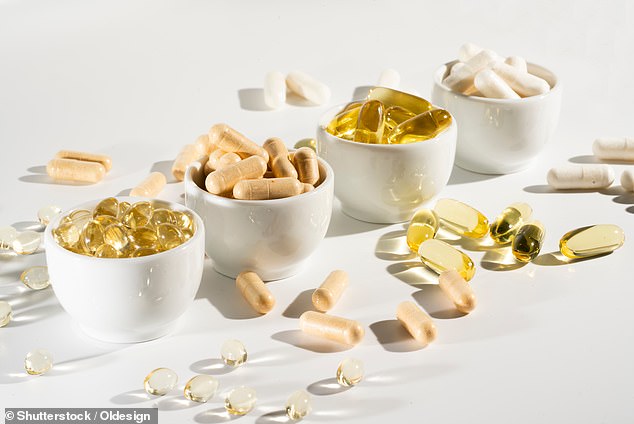[ad_1]
As autumn looms, you might be thinking about glasses of red wine and digging your cosiest clothes out of the wardrobe—but one doctor says now is the time to be getting serious about supplements.
Dr Donald Grant, GP and Senior Clinical Advisor at The Independent Pharmacy, has warned that darker evenings and gloomier daytime weather means our bodies will no longer be able to naturally create enough vitamin D.
Vitamin D is vital for the normal functioning of our muscles and immune system, and because it helps the body absorb calcium, it’s vital for maintaining bone and muscle health.
‘Without this nutrient, people are more at risk of conditions such as rickets or osteoporosis—highlighting its importance,’ said Dr Grant.
‘Additionally, the vitamin is also crucial for supporting the immune system, helping the body protect against infections or diseases.
‘A lack of vitamin D could put your body at a heightened risk of autoimmune conditions and chest infections.’
The minimum threshold of vitamin D is set at 20ng/ml by the institute of medicine in the US, but is lower in the UK where the NHS cites 12ng/ml as being a healthy base level.
It is currently estimated that around one in six adults in the UK do not get enough vitamin D—and older people need to be especially careful.

Vitamin D is vital for the normal functioning of our muscles and immune system
Dr Grant said: ‘Aside from bone health and immune support, vitamin D is important for muscle function and a deficiency could lead to muscle weakness.
‘This emphasises that people of all ages must adopt a healthy nutrient intake, as older individuals could be at an increased risk of falls.’
Vitamin D is found naturally in foods like oily fish, red meat and egg yolks, but is also made naturally by the body when it is exposed to sunlight, hence why it’s also known as the ‘sunshine vitamin’.
And it’s because of this that Dr Grant says now is the time to start supplementing.
He said: ‘It’s fair to say summer has come to an abrupt end, with stormy weather up and down the UK.
‘While most vitamins can be attained through a healthy diet and lifestyle, vitamin D is typically gained from sunlight.
‘As we approach the colder, less sunnier months, supplements can be a great source of the vitamin.
‘With daylight hours set to drop, the body may require additional support in attaining this crucial vitamin, and that’s why I strongly recommend purchasing some vitamin D supplements at this time of year.

Vitamin D is found in numerous foods, but it can be hard to get enough through diet alone
‘Taking these supplements earlier in the year can combat the lack of sunlight, avoiding the risk of nutrient deficiencies throughout the colder period.’
Dr Grant added that, in his opinion, the best supplements to take offer more than the NHS’ recommendation of 400 IU of vitamin D per day.
‘People can rest assured knowing their immune, bone and muscle functions are being adequately supported.
‘With the weather remaining quite disappointing, it’s important to keep on top of nutrient intake to avoid a reduction in well-being.’
When adding supplements to your diet it’s important to seek your GP’s advice, especially if you are already living with a health diagnosis.
Because excesss vitamin D causes the body to absorb more calcium than it needs, it can cause it to accumulate in the bloodstream and then get deposited into tissues in the kidneys, lungs and heart.
This leads to nausea, vomiting, constipation, dehydration, bone pain and kidney stones.
[ad_2]
This article was originally published by a www.dailymail.co.uk . Read the Original article here. .

